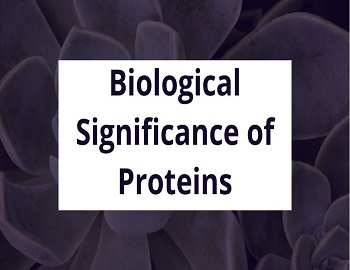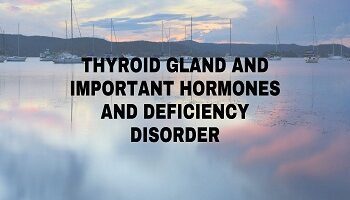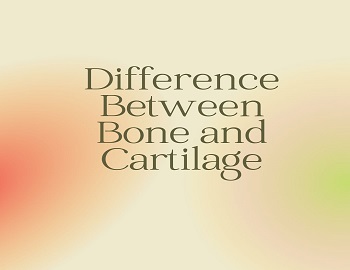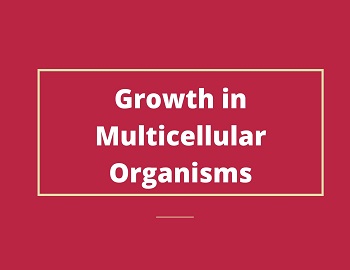Biological Significance of Proteins:
Proteins are of utmost significance to biological systems. These are most critical to life and perform various functions. Some of their roles are given below-
(1) Many proteins act as catalysts, thus usually enhancing the rate of chemical reactions to such extent as needed by the living cells.
(2) A few proteins function as hormones. Example- somatotropic or growth hormone of anterior pituitary and insulin, a hormone regulating glucose metabolism, secreted by the pancreas.
(3) Nucleoproteins form chromatin material. During cell division, it condenses to form chromosomes which are carriers of hereditary characters. The protein part of these nucleoproteins include protamines, histones and non-histone chromosomal (NHC) proteins.
(4) Interferons are low molecular weight, regulatory glycoproteins produced in response to viral infection, endotoxins, antigenic stimuli, rickettsiae and protozoan parasites. Interferons are important therapeutic agents for treating viral diseases such as hepatitis, encephalitis, cancer and the common cold.
(5) The fibrous proteins serve as components of the tissues holding the skeletal elements together. A collagen is a structural unit of connective tissues.
(6) Protective proteins are antibodies or immunoglobulins. These combine and neutralize foreign proteins (antigens). Immunoglobulins are gamma (γ) globulins which are produced in the spleen and lymphatic cells in response to foreign substances (antigens). There are five classes of immunoglobulins IgG, IgA, IgM, IgD and IgE. The blood proteins, thrombin and fibrinogen are responsible for blood clotting and thus prevent loss of blood at the time of injury.
(7) Proteins perform transport functions. Many compounds eneter the cells and accumulate inside at much higher concentrations than expected from diffusion alone. These changes require the input of energy and are usually termed active transport. The mechanism of active transport involves proteins either as catalysts or as adsorbents or as both. Examples of Proteins that perform transport function are lipoproteins, haemoglobin, serum albumin, permeases, myoglobin etc.
(8) Locomotory organs of cells like cilia and flagella are formed of microfilaments, composed of proteins, tubulin.
(9) Proteins are stored as reserve food such as egg albumin or in various seeds (glutellin in rice, zeins in maize and phaseolin in pea).
(10) Peptides from humans called defensins have been found to be antibiotic in nature. Produced by the immune system, these cells smother and kill the invading pathogens. They are secreted by the epithelial cells lining the moist body surface of mammals and serve as the body’s own disinfectants.
(11) Proteins regulate cellular and physiological activities of the cell. In addition to enzymes and hormones, proteins control DNA replication, protein synthesis, chain initiation and chain termination etc. G-proteins transmit hormonal signals inside the cells to nucleus.









Comments (No)